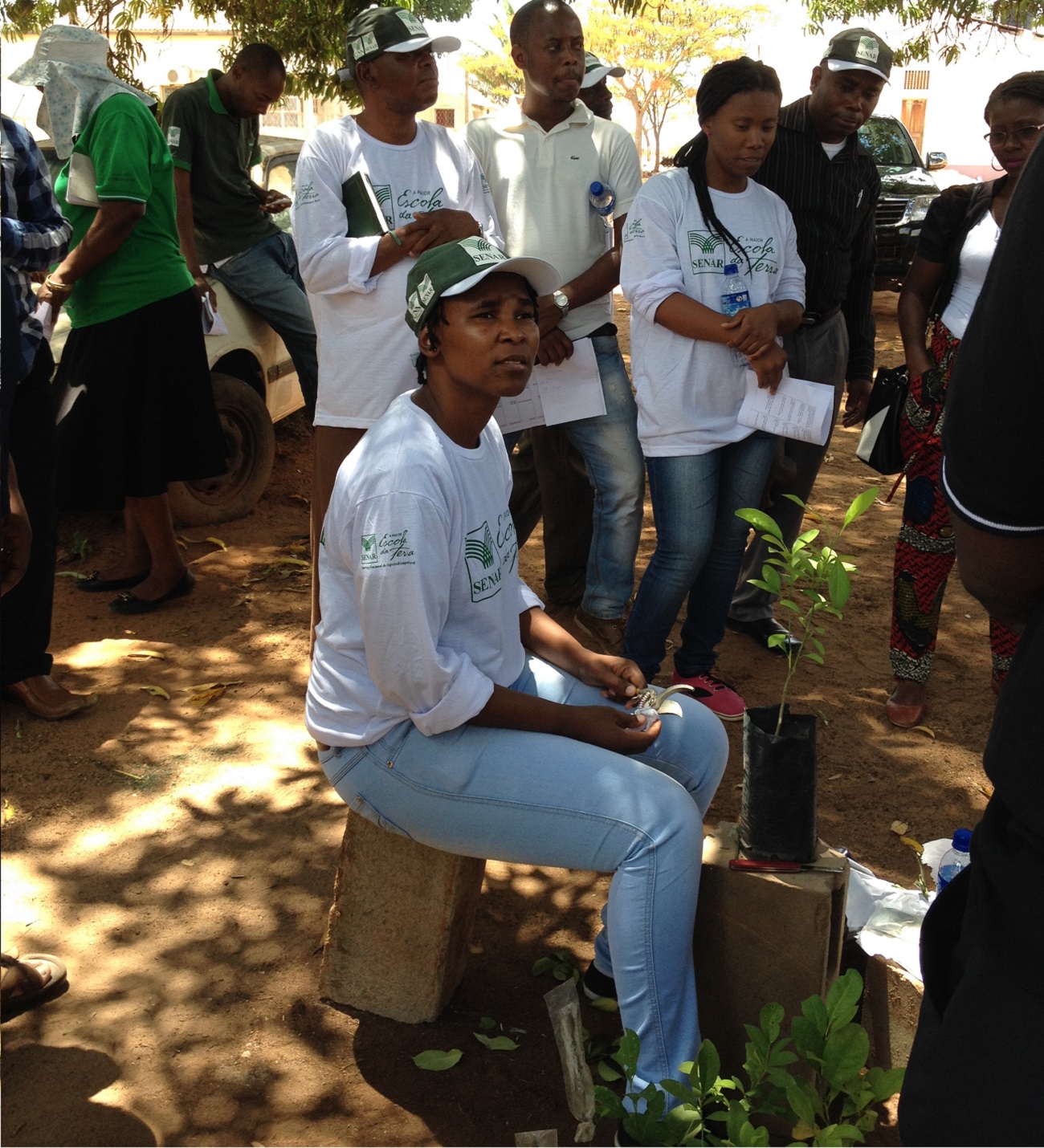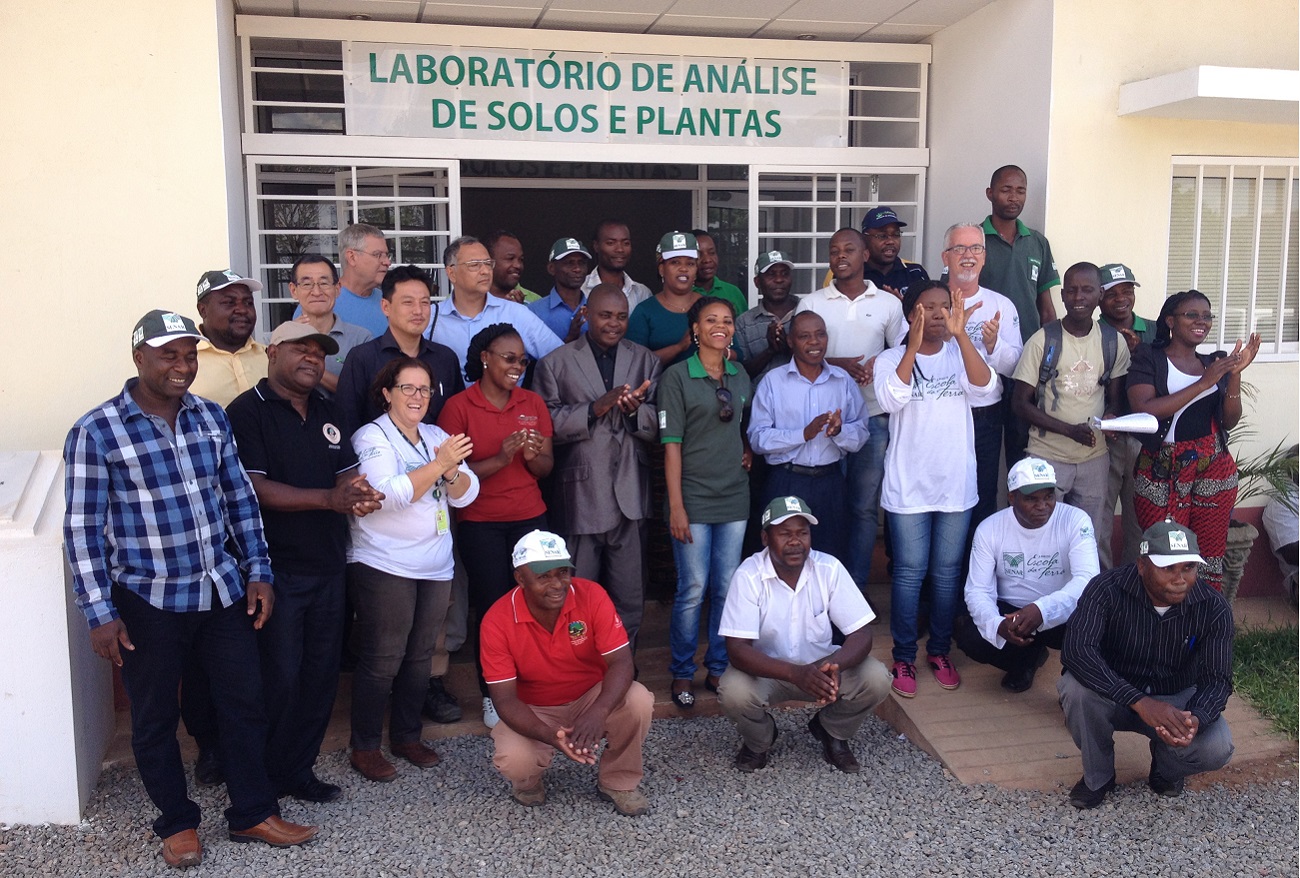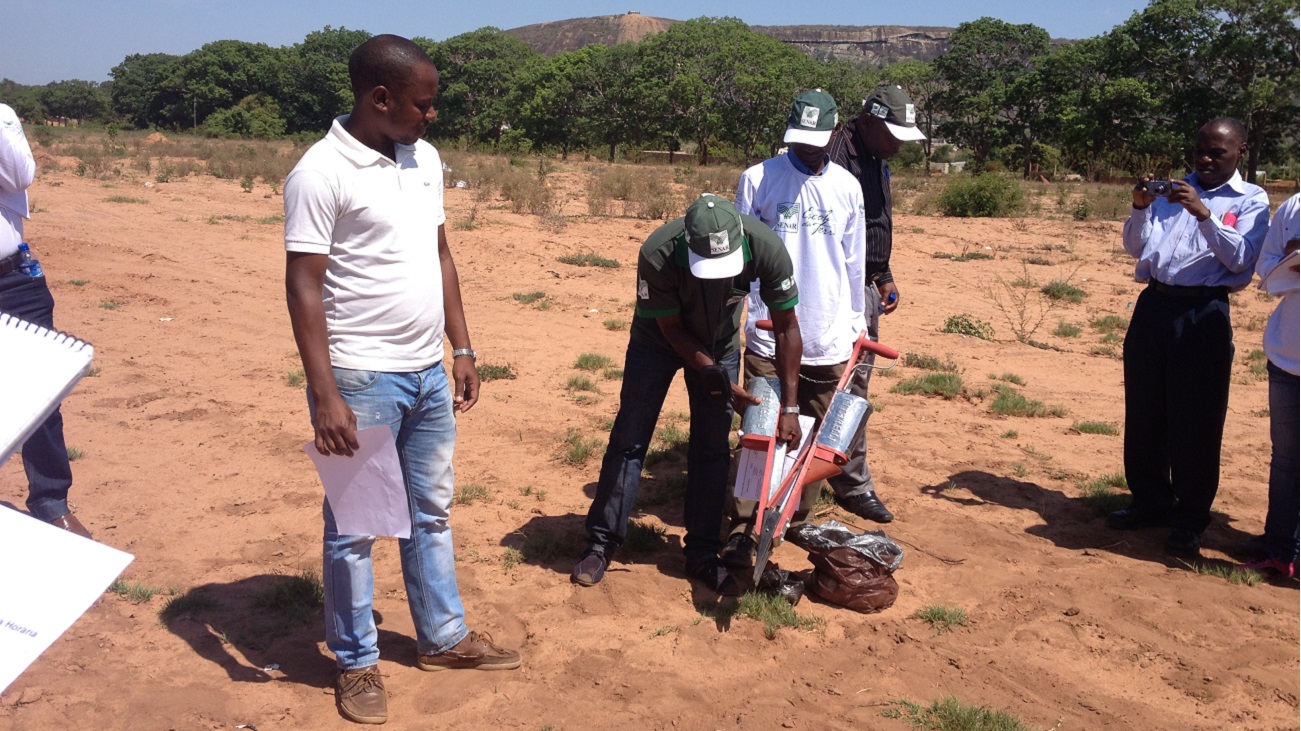 Support for Rural Vocational Training and Social Promotion of Rural Communities
Fostering higher income and better quality of life for family farmers in Kwanza Sul Province, Angola
Support for Rural Vocational Training and Social Promotion of Rural Communities
Fostering higher income and better quality of life for family farmers in Kwanza Sul Province, Angola

Challenges
Subsistence farming is the predominant agriculture model in Angola, characterized by rudimentary practices and the use of manual tools. Consequently, low crop productivity limits the income and quality of life of small family farmers. In the coastal province of Kwanza Sul, inefficient management of crops has negative consequences for the livelihood of rural families, who end up depending on food imports. The restricted supply of typical local-diet foods thus hinders the food and nutritional security of these communities. Training and professionalization of agriculture technicians and rural producers have the potential to revitalize this productive sector and promote the growth of food production. The main challenge is to adapt more efficient agricultural methods to the characteristics of the Angolan rural environment, as well as to introduce them, through educational actions, in the sociocultural context of traditional communities.
Towards a Solution
This South-South capacity-building project was implemented by Brazil’s Nation Rural Learning Service (SENAR), with support from the Brazilian Cooperation Agency (ABC) and Angola’s Ministry of Agriculture (Agrarian Development Institute/IDA). The project aimed to promote the improvement of the quality of life of rural communities in the Angolan province of Kwanza Sul. SENAR’s technicians adapted the methodology of rural vocational-training courses used in Brazil to qualify Angolan farmers and rural workers. Following an initial diagnosis of the local rural working conditions, the technicians included a module on the importance of the correct use of basic personal protection equipment, especially regarding the safe handling of fertilizers. Knowledge was transferred through training provided to 20 technical staff of Angola’s Agrarian Development Institute and local agents. Trained as instructors, these resource persons can now disseminate SENAR’s methodology to a larger number of family farmers, ensuring the sustained and scalable impact of the project.
As a result of the capacity-building activities, some basic techniques adapted to the Angolan sociocultural reality have helped improve crop productivity in the communities. For example, family farmers have learned to build and handle a wooden instrument (called pé-de-galinha) that allows them to mark the land with contour lines, a simple solution to protect crops rooted in hilly terrains from rainfall and thus improve agricultural efficiency. Likewise, basic soil-analysis techniques helped guide producers on soil fertility. SENAR’s educators conducted training sessions on the use of a hand jab planter (matraca), another very simple and efficient tool for fertilizing and planting in small areas.
The exchange of professionals from the two countries involved two visits of SENAR staff to Angola (between 2010 and 2012) and a visit of 13 Angolan technicians to Brazil (in 2012) to gain first-hand knowledge on rural properties in the state of Paraná. On this occasion, the Angolan delegation also participated in a training programme focused on management and entrepreneurship, as well as in a course on soybean processing for consumption.
This cooperation project has borne fruit in both countries. On the one hand, it transferred agricultural training techniques to Angola, while on the other, it laid the groundwork for SENAR to develop its own methodology for adapting technical assistance and professional training programmes in other developing countries (SENAR now has a unit dedicated to international cooperation).
Contact Information
Countries involved
Supported by
Implementing Entities
Project Status
Project Period
Primary SDG
Secondary SDGs
Similar Solutions
| NAME OF SOLUTION | Countries | SDG | Project Status | |
|---|---|---|---|---|
ADAPT PLAN in Malawi |
Angola, Brazil | 01 - No Poverty 05 - Gender Equality 11 - Sustainable Cities and Communities | Ongoing | View Details |
Addressing Racial and Ethnicity-based Discrimination and Strengthening the Protection of Rural Afro-descendants UNFPA supports data disaggregation as a tool to fight racism and ethnic discrimination |
Angola, Brazil | 01 - No Poverty 02 - Zero Hunger 03 - Good Health and Well-being 05 - Gender Equality 06 - Clean Water and Sanitation 11 - Sustainable Cities and Communities 16 - Peace and Justice Strong Institutions | Ongoing | View Details |
ADELANTE Triangular Cooperation European Union – Latin America and the Caribbean |
Angola, Brazil | 10 - Reduced Inequalities | Ongoing | View Details |
Advanced International Training Programme on Municipal Finance and Local Democracy across Five African Countries Pioneering the proof of concept that greater impact in capacity development for local governments requires a hybrid of methodologies to unlock resource flows |
Angola, Brazil | 01 - No Poverty | Ongoing | View Details |
Affordable Prefabricated Housing for Everyone China assists Liberia to facilitate sustainable infrastructure development |
Angola, Brazil | 01 - No Poverty 09 - Industry, Innovation and Infrastructure | Completed | View Details |


